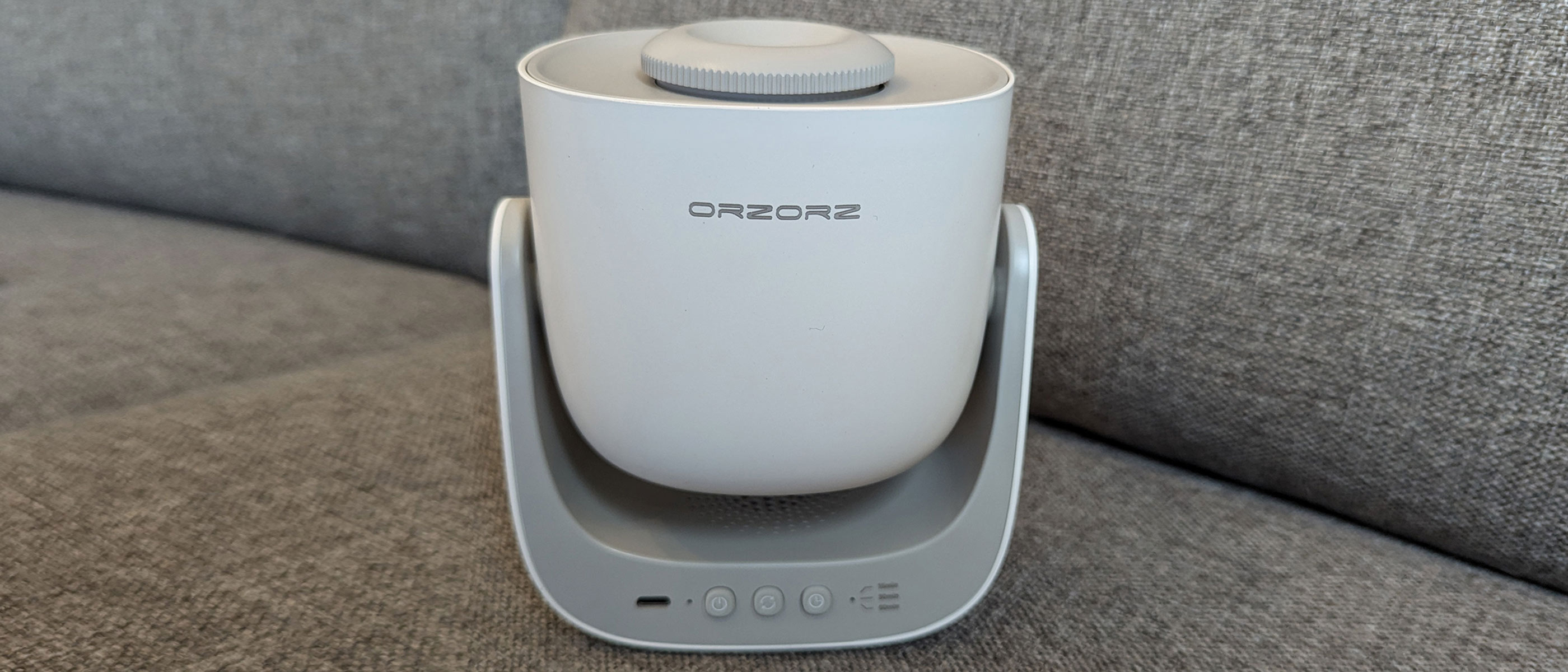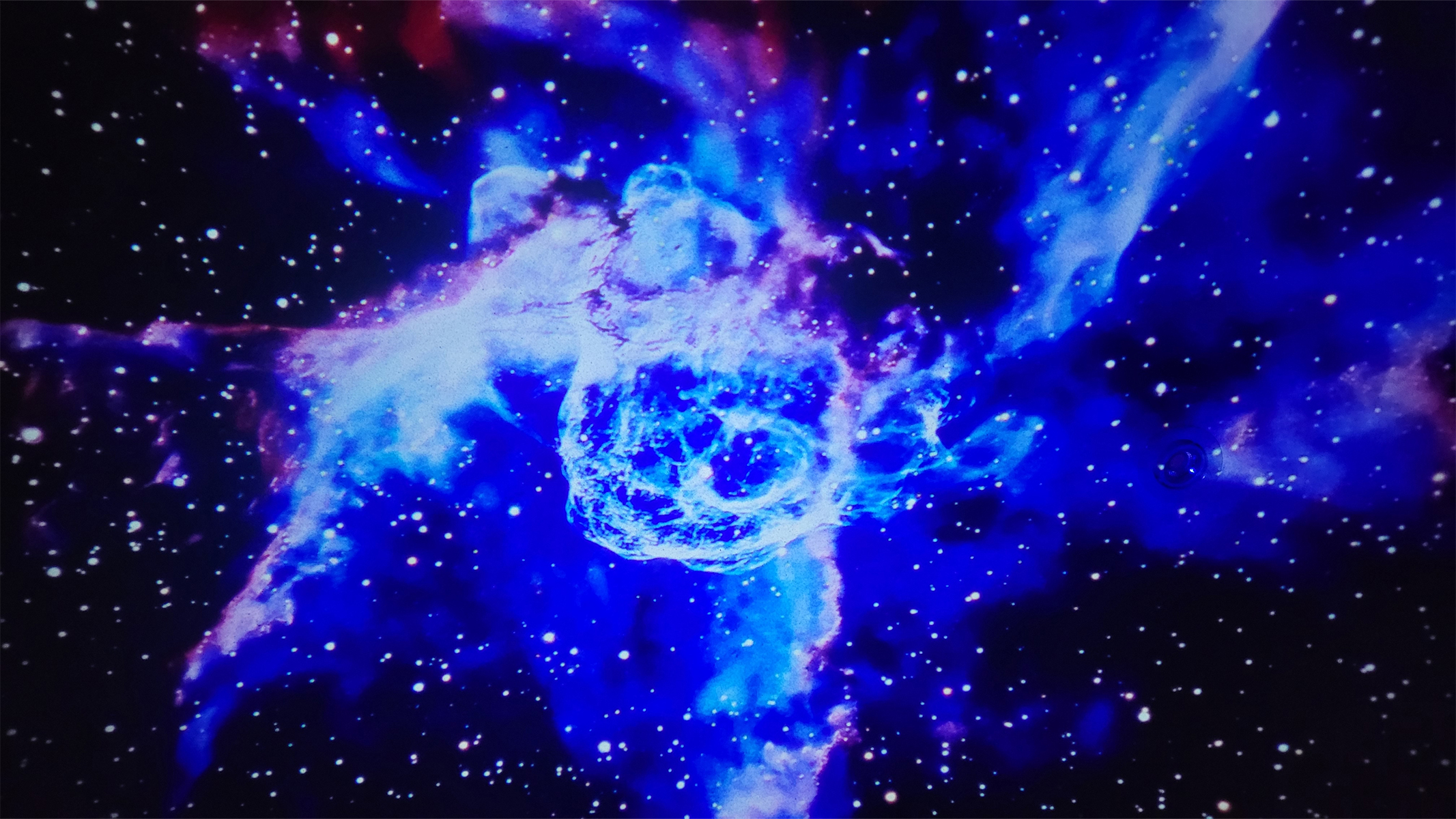Space Verdict
The Orzorz Galaxy Lite Home Planetarium Star Projector offers all the features we love about some of the best star projectors we've tested but at a more affordable price. It boasts a sleek design, vivid images, easy operation, and a vast library of add-on disks, including disks that we've used with other models. It's rechargeable too so you don't need to keep it by mains power.
Pros
- +
Both battery and mains-powered
- +
Vivid colors
- +
Rivals big players
Cons
- -
Disks are tiny, difficult to hold
- -
Vertical positioning only
Why you can trust Space.com
The Orzorz Galaxy Lite star projector is a model that we first discovered thanks to their substantial social media presence, especially on TikTok. We've been reviewing the best star projectors for many years now.
Size: 160mm x 120 mm x 120mm
Bulb Type: LED
Laser: None
Control: On body
Rotation: Yes
Sleep timer: Yes
Speaker: No
Projection Surface: Max 4 m
We always look for new models to review and as such were a little hesitant at first; we're sure we've all been caught out buying things from a relatively unknown company based on a social media marketing campaign that has then turned out to be a waste of money. We took a leap of faith so you don't have to. Will it turn out to be one of the best star projectors? Read on to find out.
Orzorz Galaxy Lite star projector review
Orzorz Galaxy Lite: Design
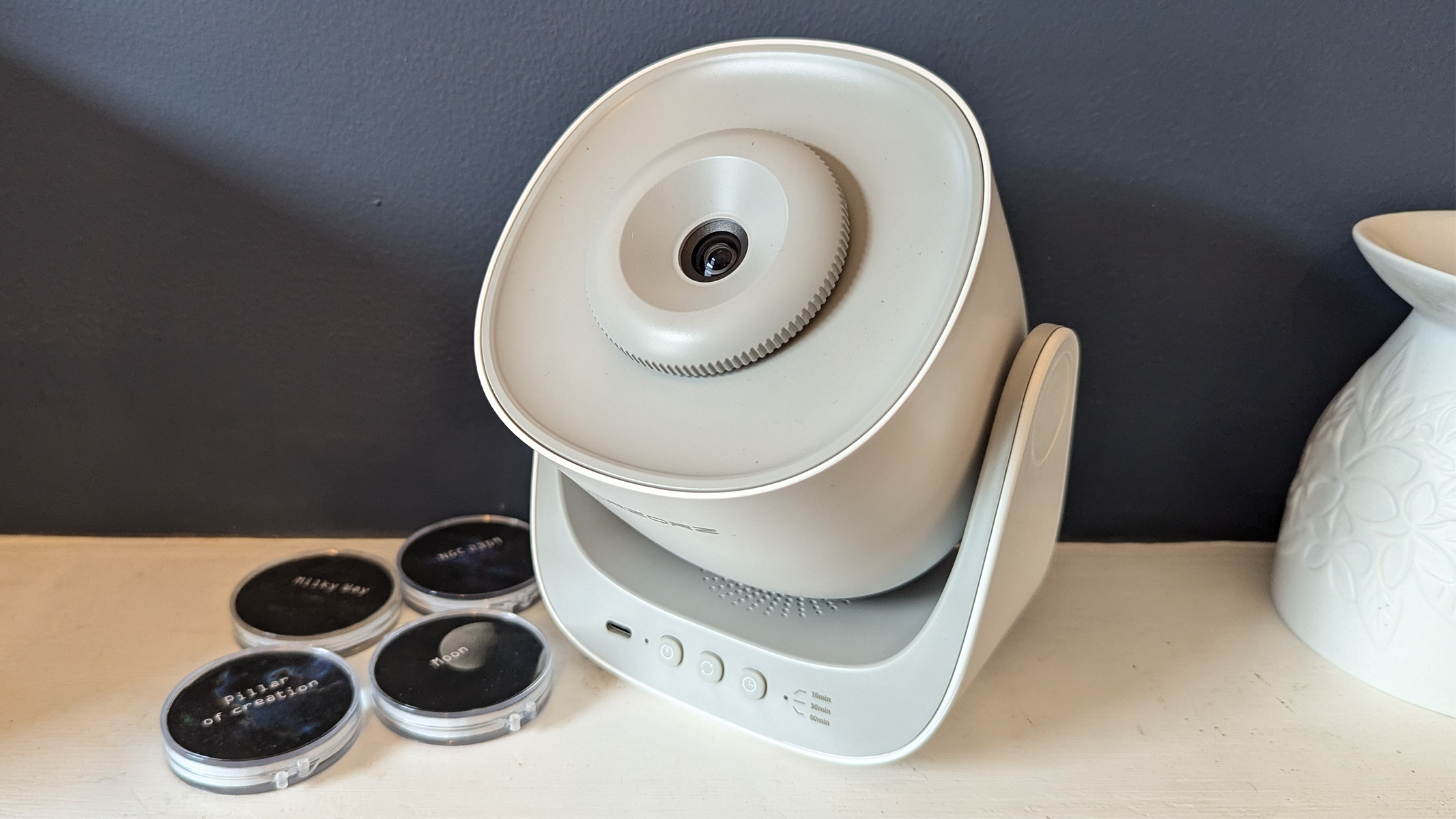
- 180-degree positioning
- Simple button controls
- Disk slot
Historically we've found that when lesser-known brands of star projectors arrive to our offices it's often clear they're cheap feeling models with no branding, poor packaging, and no indication or attempt at feeling high quality. However, Orzorz seems to have bucked the trend.
We were pleasantly surprised to see it arrive in a smart, professionally designed black box, that exudes quality (despite some minor grammatical errors that presumably were lost in translation). The device itself is white and grey, featuring no garish colors, just subtle branding, which we like.
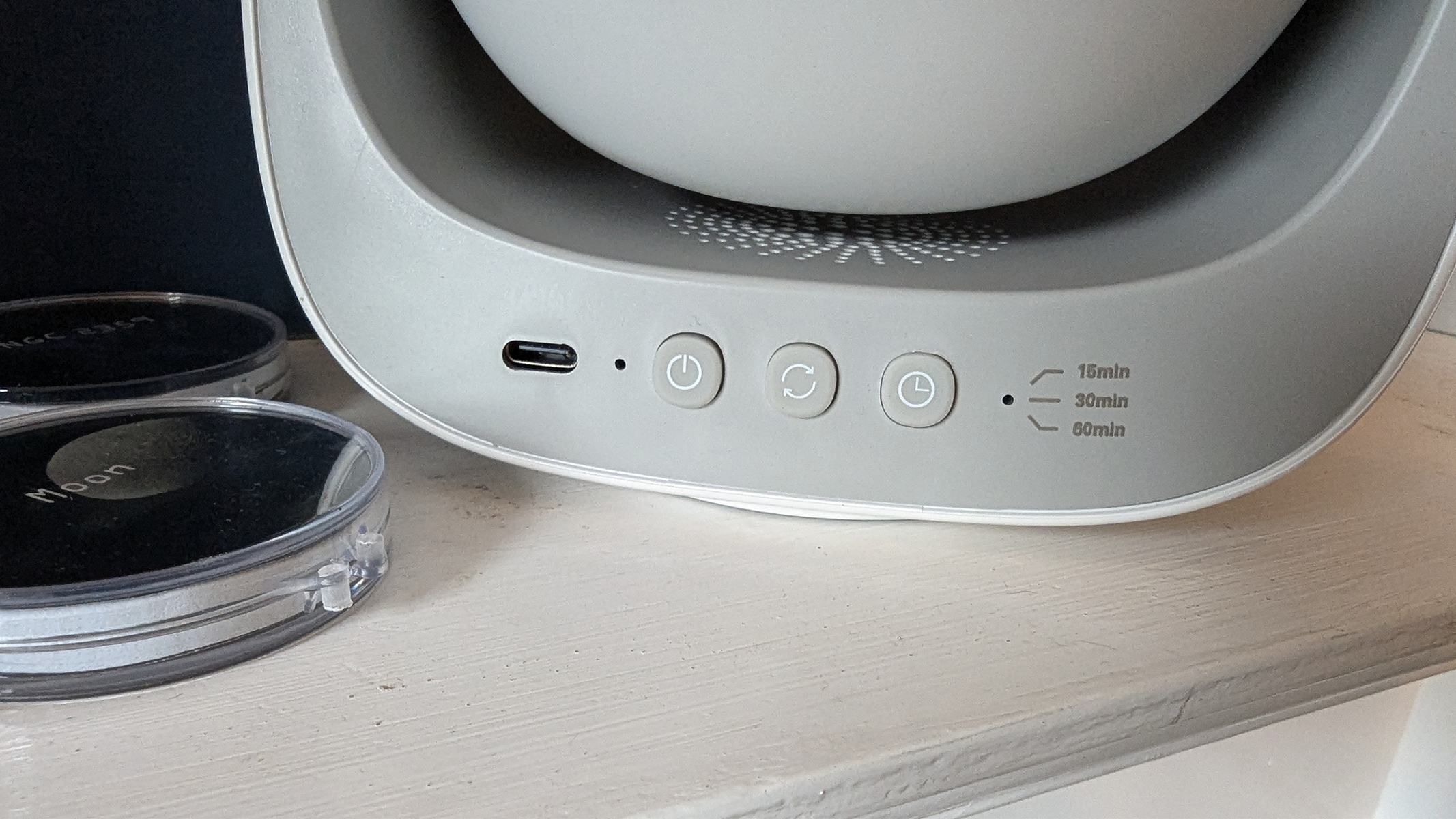
The projector's base is wide, providing stability to the adjustable projector body. The projector can be positioned vertically within its base through 180-degrees, with each position locking with a satisfying click for stable projection onto walls or ceilings without slipping; there's nothing worse than the image slowly creeping down the wall on projectors that don't lock in place. Additionally, as there are no cables to get in the way you can rotate the device itself on its surface to direct the beam horizontally. Like most projectors that use projection disks, you turn the focus wheel around the glass to sharpen the images.
The settings are changed using on-body controls, there's no remote or app, but there's no need for them. Rather than projecting customizable patterns of light (where a remote or app would be useful), the Orzors Lite works in a similar fashion to the Pococo Galaxy star projector and the ever-popular Sega Homestar Flux — with a bright light shining behind a pictoral disk. There aren't any lasers, shooting stars or twinkling — just a projection of the image on the selected disk.
Orzorz Galaxy Lite: Performance
- Impressive colors
- High definition images
- One projection disk at a time
On loading up the NGC 2359 (Thor's Helmet) disk into the disk draw and powering up the unit, we were impressed with what we saw. The projection is bright, with strikingly vivid colors, and the projection surface was pretty much our whole room.
Breaking space news, the latest updates on rocket launches, skywatching events and more!
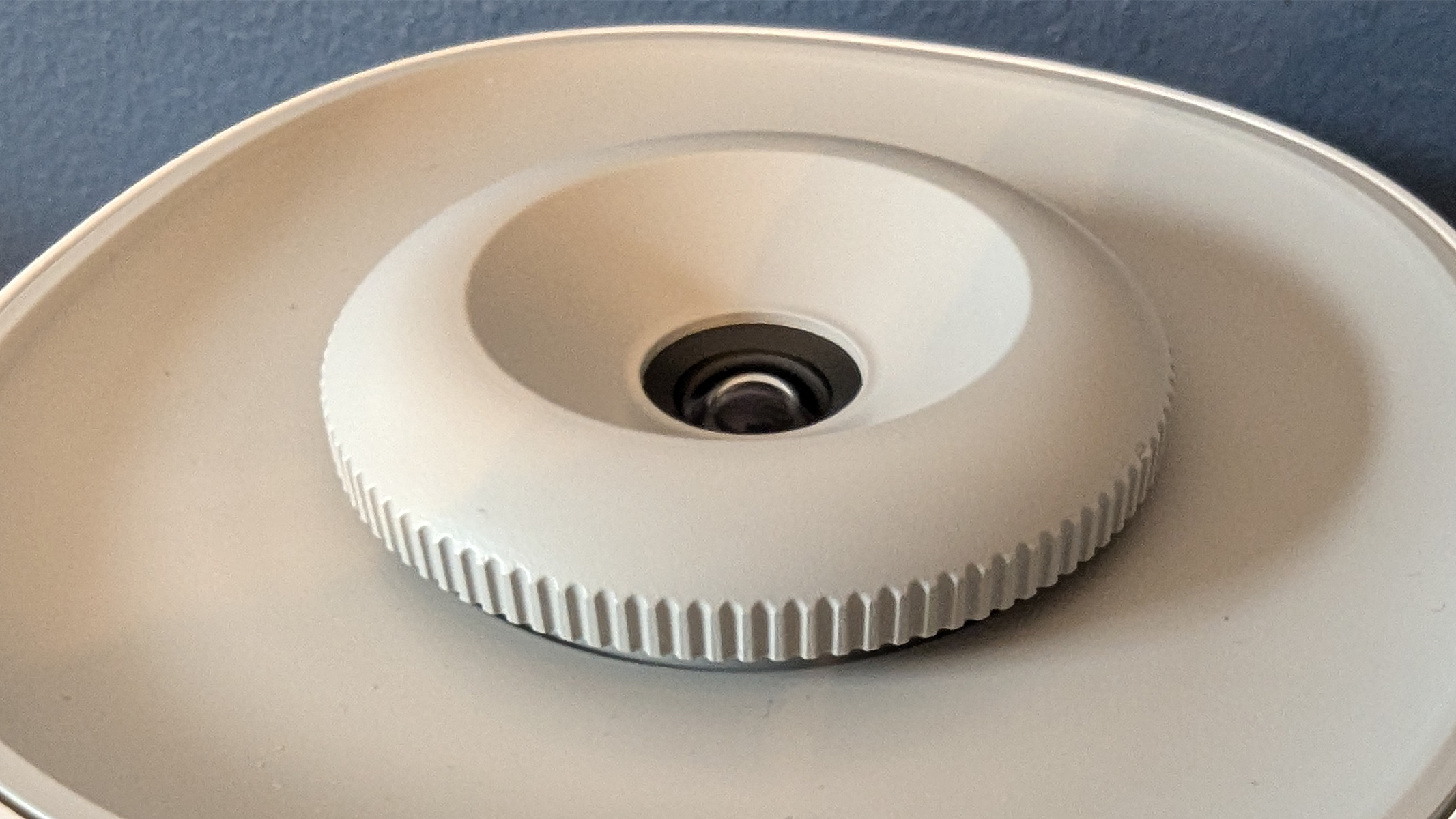
Although you can enjoy the projections with the lights on, they really come into their own in total darkness. They are really impressive, and you do feel immersed in the projection.
One thing to bear in mind is that some user reviews (on the likes of Amazon) mention the colors on the disks fading after time. We've had this model for several months, and we haven't seen this yet, but we don't know how long these users are leaving the light shining through the projection or what conditions they are being stored in. If you do find the colors fade after time, replacement disks are reasonably priced and there is a vast catalog to choose from, but it's best to avoid unnecessary waste if possible.
During our review we discovered that the disks that go in this Orzorz Galaxy Lite are the same size as in the Pococo Galaxy star projector, further expanding your expansion potential and handy if you're making the move from one to the other or buying in conjunction for multiple rooms.
Orzorz Galaxy Lite: Functionality
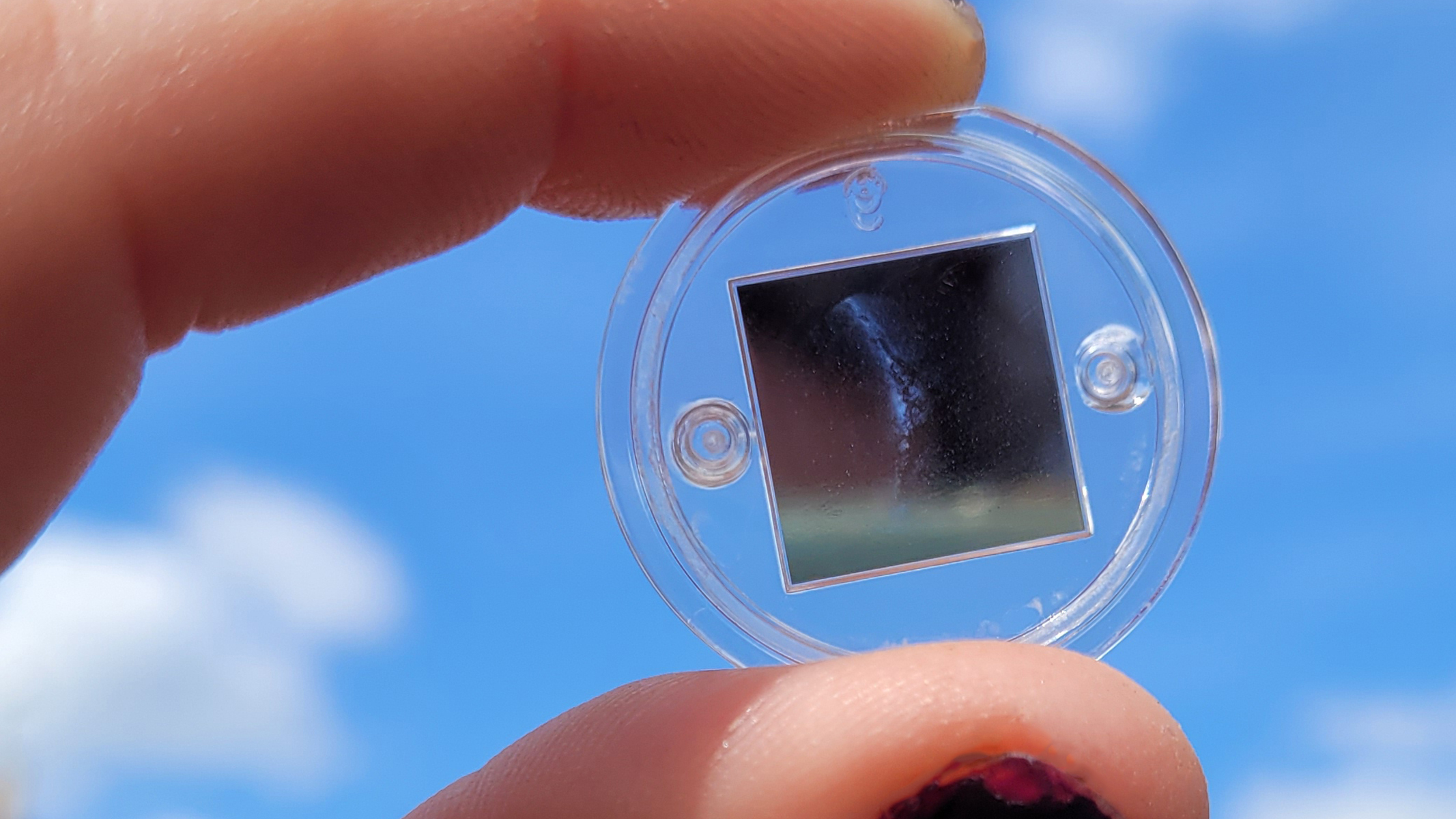
- The rechargeable battery makes it portable
- Optional rotation function
- Sleep-timer functionality
The Orzors Galaxy Lite couldn't be easier to operate. As we mentioned, there's no remote or app, just three on-body controls—on, rotate, and sleep timer—all self-explanatory. The sleep timer can be set for 15 or 30 minutes or an hour.
The handiest thing about this star projector is that it is rechargeable using USB-C. Orzors have chosen not to include a mains plug, but the unit comes with a supplied USB-C to USB-A cable. The fact that you don't need to be 'plugged in' gives you more flexibility in where you can position it—you don't need to be near a plug socket. Place it on any shelf, or take it camping with you to create immersive space-themed environments.
Should I buy the Orzors Galaxy Lite star projector?
In short, yes. The Orzors Galaxy Lite gives us everything we love to see in a star projector: a sleek design, vibrant imagery, a quiet motor, easy operation, excellent packaging, and an expandable collection of disks. Plus, it's rechargeable with USB-C and, therefore, highly portable, more so than the Sega Toys Homestar Flux, which requires mains power. Despite all these features, it still costs a fraction of what more well-known, highly-reviewed products do. It also comes with a one-year manufacturer's warranty, excellent customer service, and the team at Orzorz are incredibly helpful.
A similar star projector to the Orzors Galaxy Lite is the Pococo Galaxy star projector. It offers pretty much the same functionality but in a different body style. It stands like a globe on a base rather than on a pivoting axis, it also uses the same projection disks.
If you want to purchase a star projector as a gift for a child, you can't go far wrong with the Astronaut Starry Sky Projector. Instead of using disks, it projects beautiful patterns and laser lights on the ceiling that are customizable in color, speed, and combination of lasers and lights. Despite being a novelty shape, it's surprisingly good quality. At around $30, it's great value for money, although it's often on offer for much less, especially around popular sales events like Amazon Prime Day and Black Friday.
Consider the National Geographic Astro Planetarium for a slightly more educational projector for a child. You can 'program' the projections to a desired time and date along 35 degrees north — great for getting to know the constellations in the northern hemisphere without having to set foot outdoors.

Tantse Walter is a writer, photographer and travel enthusiast that has spent over a decade facilitating global adventurous expeditions. She loves getting into the nitty-gritty of sourcing and planning itineraries, getting out and about in nature, and admiring the night sky.
